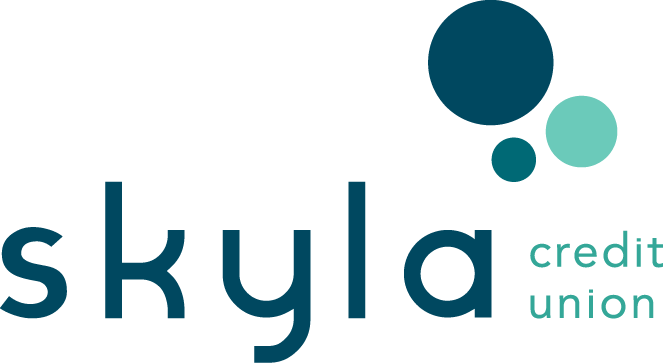What If I Don’t Have Savings During an Emergency?
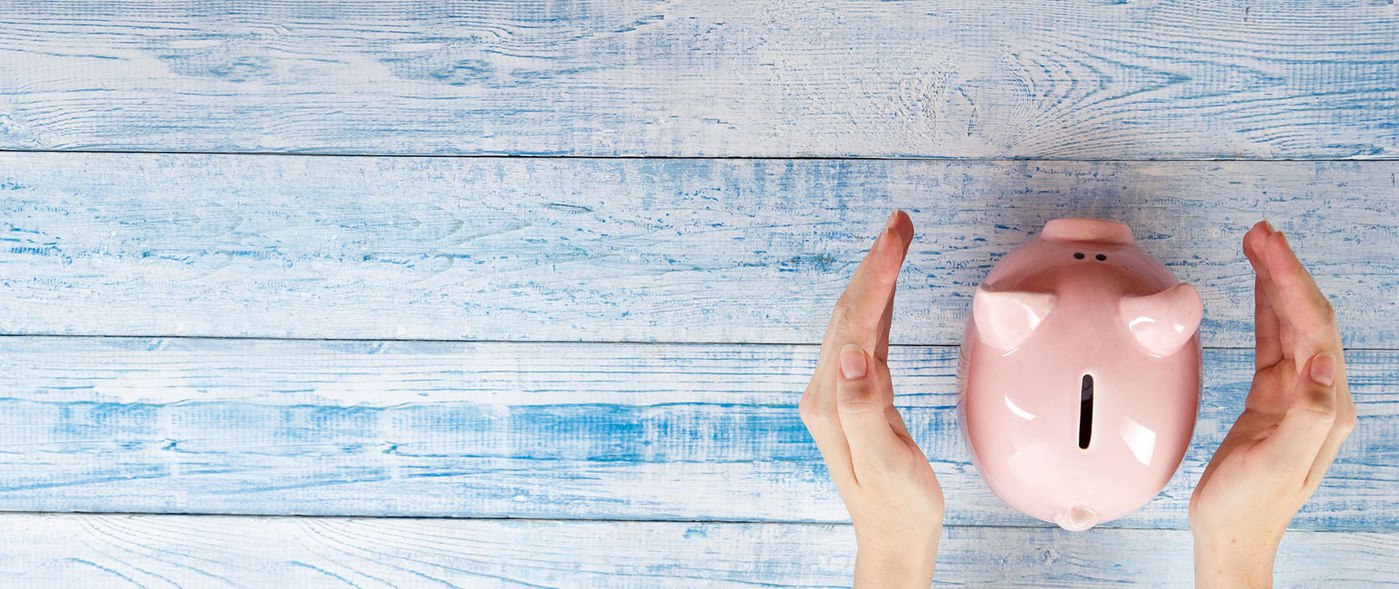
Building a healthy savings account doesn’t always work out the way you plan. A majority of your paycheck might go straight to paying bills, you might not have a reliable paycheck at all, or you might not be the best budgeter.
Unfortunately, life challenges do not discriminate based on bank account balances and, even if you have very little in savings, you could still get hit with an expensive emergency.
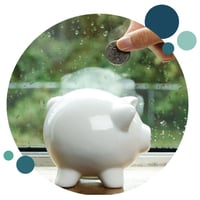
In a previous article, I shared some tips that include having six months' worth of emergency savings for unplanned expenses. But – in reality – it’s hard to save money!
So... what if there's an un-budgeted emergency?
First and foremost, contact your financial institution. If you're seeking financial advice, use the tools and resources that are within reach. Your financial institution should have financial services available and advisors who are ready to help get you through this crisis. As a financial expert at Skyla, I can tell you firsthand that we have savings products that were created to help our members reach their financial goals. To date, we have more than 92,000 members with access to money-saving products as well as affordable lending solutions.
Whether you are (or aren't yet) a member here at Skyla, I'm going to help you kick this stress to the curb and provide some immediate courses of action to take when you don't have a fallback plan during a financial emergency:
YOUR FINANCIAL EMERGENCY OPTIONS |
 talk to a customer service representative
talk to a customer service representative
Talk to your financial institution and ask for assistance. They might have programs in place to be able to provide the financial help you need. Make sure you're open and honest about where you are with your finances so they can give a clear and concise plan to help get you through your crisis.
At Skyla, you can get the support you need by speaking with any of our Customer Service Representatives. Every situation is unique, and our staff can help you identify and put into action the best approach for your specific situation.
To get started, send us an email, give us a call at 704.375.0183, or you can visit us at any of our branches.
 skip-a-pay
skip-a-pay
If you have an installment loan, your lender may allow you to Skip-A-Pay (or postpone) your upcoming payment until a later date. This can be an emergency solution if you need to reallocate the funds typically used to make a monthly loan payment.
You do need to be sure your lender offers this program before skipping any payments. If you decide to skip a payment without notifying your lender, you'll incur late fees and it could be reported to the various credit bureaus, which will affect your credit score and potentially make it harder to get a loan in the future.
 refinance an existing loan
refinance an existing loan
This is a money-saving (and cash-back option) available if you have loans like an auto loan or mortgage. Refinancing a loan is when you change your existing lending agreement to a lower interest rate or shorter term.
QUICK TIP: If you're strapped for cash in an emergency and plan to refinance, it only makes sense to do so if you're able to get a lower interest rate which will lower your monthly payments. You can also refinance for a shorter term loan, but that could increase your payments. So make sure to look at the payments over the life of the loan before refinancing! |
You can also refinance with cash out if you have equity built up on your house or on your car. To do this, you need to have equity in the asset you're wanting to refinance. Equity is the amount of the home or car that you've already paid off.
 For example, if you owe $200,000 on your mortgage loan and your home is worth $250,000, you have $50,000 of equity in your home. With this setup, your lender could give you up to $50,000 in cash where you can spend it on what you need.
For example, if you owe $200,000 on your mortgage loan and your home is worth $250,000, you have $50,000 of equity in your home. With this setup, your lender could give you up to $50,000 in cash where you can spend it on what you need.
If you're in a rush to receive cash to aid your emergency, choose your refinancing options wisely. Depending on the loan, refinancing with cash-back may take longer than others. If it's a mortgage, it may take weeks. Typically, mortgages require inspections, appraisals, and title searches which takes time, whereas refinancing an auto loan may take a few hours - especially if you're refinancing your auto loan with the same lender.
Don't get me wrong. I'm not saying to rule out refinancing your mortgage to aid your emergency. Just choose this option if you know you're going to need money for a later date - maybe a month later. For example, If you owe a ton of money in property taxes and you have a certain window of time to come up with the money - then refinancing your mortgage with cash-back could be your best solution.
Whether it's an auto loan, mortgage, HELOC, etc., contact your financial institution to find out if there's a certain length of time you have to wait before you can get your existing loan refinanced.
QUICK TIP: Choosing to refinance with cash-out on your home or vehicle can be risky. With a mortgage, it can include closing costs and the risk of foreclosure if you can't make the new payments. With an auto loan, it can cause you to be upside down (owing more than what your car is actually worth), depending on how much you borrow against your car's equity. |
Approach refinancing with cash-out with caution. To help you prepare for the worst-case scenario, check out the 7 Steps to Building An Emergency Fund. This article will help get your savings in great shape for any emergency.
 credit cards
credit cards
In the event of a financial emergency, your credit card can be your lifeline. Just make sure you're not spending above your means / putting yourself into a crazy amount of debt that will make it incredibly difficult to bounce back from.
Psst... start reading up on the various tactics of paying off debt now so, when the time comes, you'll have a plan already in place.
QUICK TIP: If you do have to resort to using a credit card, treat your credit card as you would your emergency savings fund. Only use it for the essentials – food, gas, and bills – to keep you afloat until you have the financial freedom to spend on non-essentials. |
 personal loan & home equity line of credit
personal loan & home equity line of credit
Another great option for extra cash flow to hold you over is a Personal Loan or Home Equity Line of Credit (HELOC), where you're able to access funds on an as-needed basis.
personal loan
Applying for a personal loan could give you access to the extra cash you need. The biggest difference between a personal loan and a credit card is the differentiation between the types of credit. A credit card is a line of credit, meaning you can borrow and pay back up to your credit limit as often as needed. A personal loan is a fixed credit amount lent once and repaid in equal installments over an agreed-upon time.
To learn more about the difference between a credit card and a personal loan, and to determine which is best for you, check out this Money Under 30 comparison article.
heloc
A HELOC allows you to unlock the equity you've already built in your house to provide you with the extra cash flow you need. To learn more about the details of a HELOC, check out this Credit Karma blog post.
 use the savings you have
use the savings you have
You may be asking yourself, "but, is this really a true emergency?!" Unfortunately, that's a question only you can answer. So, before you tap into these funds, seriously consider what they will be used for and if it is truly an emergent need.
For example, if you're no longer receiving a paycheck or your income is sporadic, emergency funds should not be used for minor spending, such as brunch with friends or a concert ticket. The better, smarter option for using your emergency savings would be to cover basic needs like food, gas, and paying the bills.
Check out the 7 Steps to Building An Emergency Fund where I discuss the general principle behind saving and spending for emergency needs.
 look for money-saving deals
look for money-saving deals
Don't forget about all of the money-saving deals available to you as you look to cut costs!
- Grocery Savings: You can join free grocery stores' reward programs (think Harris Teeter's VIC, Club Publix, or Food Lion's MVP) for discounts on everyday purchases.
- Gas Savings: Looking to save on gas? Costco, BJ's Wholesale, and Harris Teeter also offer discounted gas when purchased at one of their locations (as long as you're a member of their program).
- Travel Savings: If you're looking for travel deals, you can find some fantastic rates on sites like Priceline and Expedia. I've booked last-minute flights to New York using Priceline and Expedia, and the rates I found were better than the rates listed directly on the airline's website.
- Account Perks & Savings: Your financial institution may also offer accounts with perks and savings. For example, checking account comes with local and national retailer discounts. And, as a Platinum Rewards credit cardholder, you're able to use your rewards points to redeem cash and / or gift cards.
QUICK TIP: There are plenty of other money-saving deals to be had! Installing the Honey extension on your internet browser will automatically search for coupons and discounts available when you're online shopping. |
 investments and 401(k)s
investments and 401(k)s
This should be an absolute last resort! Taking money out of your investments or 401(k) will come with fees and penalties and - looking at the long-term - could hurt your future financial plans. It's not completely off-limits, but should be used with caution in those extreme financial cases.
DO NOT use these reserves for something as minimal as credit card or auto loan payments. Before you do anything with these accounts, seek professional advice on your specific situation.
|
ready to tackle your emergency?
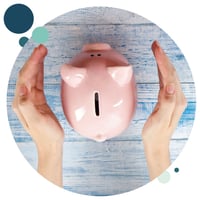 Times of financial hardships are always highly stressful – and it's often so overwhelming you don't even know where to begin. Just know that you are not alone.
Times of financial hardships are always highly stressful – and it's often so overwhelming you don't even know where to begin. Just know that you are not alone.
If you'd like to chat with a Skyla Representative, send us an email, give us a call at 704.375.0183, or visit any of our branches.
As Content Strategist behind the Learning & Guidance Center, Yanna loves showing just how doable finance can be. Whether it’s simple tips, step-by-step guides, or comparison charts, she’s passionate about helping readers take charge and reach financial freedom with confidence
more resources to help your money grow
7 Steps to Building an Emergency Savings Fund
Don’t know where to start when saving for an emergency fund? Here is how you can save for an emergency with effective tips for anyone who isn’t prepared...
8 min. read
How Do I Start Saving for My Goals?
Have trouble saving money to reach your goals? Here are some effective steps and tools available to help you get started.
9 min. read
 common saving techniques
Check out some popular styles on how to save money.
common saving techniques
Check out some popular styles on how to save money.
 to-do's for an unbudgeted emergency
to-do's for an unbudgeted emergency
Here are actionable tips you can do to help you through a tough time.
 build an emergency savings
build an emergency savings
Save for an emergency with effective tips for anyone who isn’t prepared.
